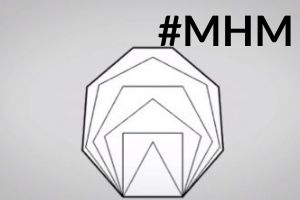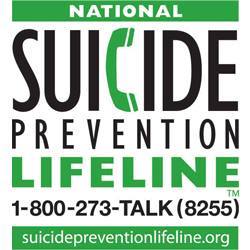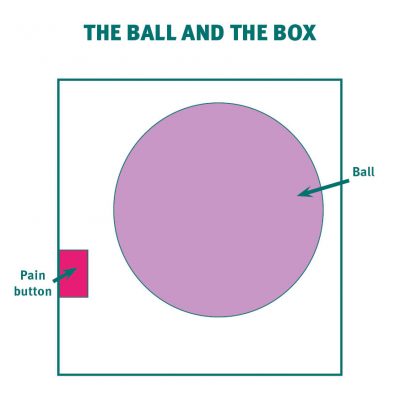Mental Health Mondays: Grief

Today we are talking about grief and loss. The content of this post includes mentions and references to death. Please take care of yourself and decide if you are able to read this post right now.
We are not mental health professionals. If you are feeling overwhelmed with emotions like anxiety or depression, or they are impacting your daily life, please reach out to professionals who can help you. If you need immediate help, use the National Suicide Hotline, 1-800-273-8255, which offers online chats as well. Jewish Community Services also offer help to people experiencing emotional crises.
We aim to provide some tips and guides to help those who are self-isolating and to connect with our JMM community. These ideas might not work for everyone, but we hope that by starting the conversation about mental health, we can inspire you to take a moment to breathe and reflect on what you need today to feel good.
Right now, we are experiencing collective grief and loss. Loss of black folks and various protestors killed by police violence. Loss of people, disproportionately black folks, who are dying from COVID-19. Loss of our way of life, of what we considered normal. Loss of income and housing stability. Loss of routine, social connections, of regular life.
In some ways, this loss may lead us to a different future, one where health insurance is not linked to employment, where housing is a guaranteed right, where technology can allow for more accessibility for all. However, to find hope at this moment we must also acknowledge our grief. Grief is commonly associated with the loss of a loved one, and that tearing pain of losing someone cannot be compared, however, people can experience grief over many different types of loss. Today, grief is all too common, even if you may not realize you’re experiencing it. Let’s talk about some ways to identify that you are dealing with grief, and some tips for processing and moving forward.
If your feelings of grief or loss may cause you to hurt yourself or others, please use resources like the Suicide Hotline at 1-800-273-8255, or local in-patient treatment programs.

No matter what the cause of your grief, it is a personal experience and your feelings are valid. If you are feeling grief, you may be feeling shocked and disbelief. It may be hard to understand how your life is different now, whether someone is no longer in your life or if your daily routine is gone. You may be feeling anger, that the situation that brought you loss is unfair. Sadness is the most common and universal experience of grief. The sadness of loss can be so consuming that you may be feeling despair. Please seek immediate help if you are feeling overwhelming sadness to the point that you are unable to function normally. Additionally, you may be feeling guilty about the situation, and you may be thinking about ways that you could have prevented it. There are lots of ways these emotions can grow, change, or combine, as you move on from the loss.
Grief can also cause physical symptoms, such as weight loss or gain, lowered immunity, fatigue, and nausea. People experience grief in many different ways, and so there is no one way that a person may feel.
When dealing with grief, it’s important to acknowledge that processing it can take a long time. There is no set timeline for someone to be able to function normally. And, truly, that grief may never go away, especially if it’s from the loss of a loved one. A helpful tool I’ve found to express this feeling of grief lessening but never going away is the “ball in a box” analogy. To summarize, grief is a ball in a box. On the side of the box is a button that triggers painful feelings. When you first experience loss, the ball is very big, so it hits that pain button a lot. But over time, or as you find ways to cope, that ball gets smaller, so it doesn’t hit the pain button all the time. That ball never really goes away, though, and you may hit that pain button unexpectedly. Those feelings of pain are valid, even if they occur much later after the loss.

However, there are ways to try and deal with the grief that may be helpful and may allow you to make that “grief ball” a little smaller:
>We always recommend looking for professional help. Seeing a therapist or grief counselor can be a huge help with dealing with feelings that come from loss. If you want some tips for finding someone to talk to online, check out our previous blog post about online counseling.
>Connect with friends and family. It can be difficult to reach out to people right now but leaning on others can lift a huge weight from you. Asking for help is not a sign of weakness and can even bring you closer to others. Try to find specific things to have others help you with, whether it’s making food, helping with funeral arrangements, or just have someone to keep you company. If you’re looking for ways to spend time with friends and family during quarantine, check out this post with tips for connecting digitally.
>Find others who may be going through a similar experience. Support groups can be incredibly helpful and provide a new community that can help you through this moment. While groups may not be meeting in person right now, there are still organizations that are providing the space to meet digitally.
>Take care of yourself. Dealing with grief can cause us to lose a sense of self-care, whether that means our hygiene isn’t as great, we eat less or not-as-healthy foods, or we don’t take time to do the things that make us happy and fulfilled. Make sure to check in with your personal needs and figure out ways to ensure that you’re meeting them. Set alarms to remind you to take meds and drink water. Figure out a schedule for meals and for sleeping.
>Grief never goes away entirely. There will be events and situations in the future that might trigger grief, even unexpectedly. For the ones, you can anticipate, try to prepare for them. Whether it may be the anniversary of when you started the job that you lost, the birthday of a loved one who’s passed, or any other reminder, figure out a way to honor the memory and the event. Planning ahead of time can help prevent overwhelming feelings from taking over.

This is not a comprehensive list of coping techniques, but just a start to deal with those painful feelings that so many of us are experiencing. As always, the best advice we can give is to reach out to a professional and get their help.
If you are watching someone experience grief, remember that the best way to help them is to be there, ready for whatever they need. Never tell someone how to deal with their grief. Just listen to their needs and understand that grieving is a personal, painful process, that they need to work out on their own.
